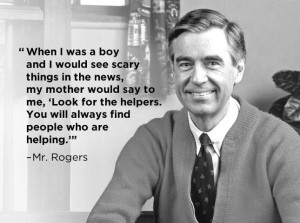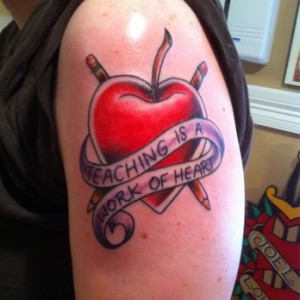ABLE MINDS meets each Wednesday night for two hours in the Lending Library. Right now we have eight participants, including my course assistant. This is the advanced class, where we delve into the components of good human character. we’re using The Hobbit. Tonight marked the 2nd of eight planned classes for the cycle.
All students demonstrated the depth of their knowledge regarding the novel. To be sure, The Hobbit was written for children, but participation of this kind you do not take for granted in the Pokey. An engaged classroom is something to be thankful for. The Moderator (Yours Truly) did not dominate the conversation, as everyone had something tangible and pertinent to contribute. That’s the way ABLE MINDS is supposed to work. I don’t need to lecture; I need to introduce concepts, see where they take them, and then challenge them to come up with alternatives if opinions begin to stray in the antisocial realm.
Many of the men contributed personal anecdotes about explaining the course to family members, both face-to-face in the visiting room and over the phone. One student’s ex-girlfriend was surprised to hear that he was reading the novel, a book that she happens to know well, So now they have a common conversational thread. Another student said his sister was shocked to discover that he was reading the novel, as she has been coaxing him to read both it and Lord of the Rings (LOTR) for several years.
The men were honest and sincere. One guy held up the novel and said, “I can’t relate the story to the life I’m leading.” But then he held up his THINK FIRST handout and said, “But I can ride with this. This is gonna help me live in here.” (At break time, my assistant discovers that this man had difficulty reading in English, and is ashamed to admit it. I’ll discuss this with him later on).
From the PowerPoint lecture, the concepts of friendship, duty, and honor drew nearly an hours’ worth of reflection. We identified plot points in the novel where examples of these take place, and then attempted to relate these to our American culture generally and then to specific prison culture.
One individual was called out of the classroom by an Officer, and was told to bring his coat and books with him. It looked like he was done for the night. But he returned, and explained that he had the choice of remaining in the Unit but chose to come back to class because “I have an anger issue, and I think this class can give me a better way of thinking.”
Several times during the evening, I’d made correlations between The Hobbit and LOTR. Finally, one man said enthusiastically, “Why don’t we do that book next?” which elicited some laughter from my course assistant. I explained that we’d been using LOTR in ABLE MINDS since April 2007, and just discontinued it in favor of The Hobbit. Feigning frustration, I said “Where have BEEN for the past five years?!” He said “Here!” which elicited general laughter.
Toward evening’s end, our discussion turned to emotions. I ventured the notion that once someone recognizes an emotional problem within himself, he must next recognize an inescapable truth about that problem, which is — It Will Never Go Away. The best that we human beings can do is work at it and hope that it gets better. A student said “And will it? Does it ever get better?”
I said that this question is probably one of the most useful questions that can be asked in a consequential thinking seminar. I asked the class to contemplate the adage, “While there’s life, there’s hope.” We’ve assembled in a course that offers troubled people encouragement and a problem-solving method to try. Like the reformed alcoholic, the problem remains but we are its master. We try. We fail. We try again. We succeed. It begins to get easier. Nothing we can ever do can make the problem vanish. But we can learn to manage it. And managing it is good enough. Knowing we have the control to make it better is enough of a self-esteem boost to get up out of bed and face each other. We give ourselves the confidence we need to face our burdens every hour of every day.
It’s a good group of men. They listen, they ask questions, and they give those answers consideration. That’s all any teacher can hope for from the classroom dynamic.
 children they were.
children they were. 







